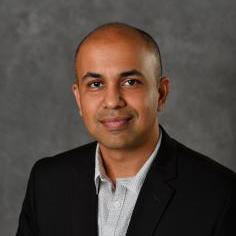Abstract
The selection of sensors for tracking the dynamics of complex systems is a computationally difficult problem that many applications must tackle. Notable examples include the surveillance of large environments, and the monitoring of disease outbreaks and transportation systems, to name a few. The role that sensors play in our ability to acquire an accurate description of such complex systems is why it is important to understand the tradeoffs between estimation performance and the number of sensors we deploy.
In this talk, we examine a randomized approach to the sensor selection problem for state estimation by leveraging matrix concentration inequalities. Concentration inequalities offer a convenient, yet unexplored, probabilistic framework for deriving bounds on performance metrics related to problems in sensor selection. Specifically, we consider metrics of estimation performance belonging to the observability Gramian and the estimation error covariance of the Kalman filter. One distinguishing feature of our approach is that our guarantees are in the semi-definite sense, which easily translates into guarantees on any standard eigenvalue-based performance metric. Another feature is that our guarantees allow us to see how estimation performance is affected by the number of sensors that we sample. Our approach is also shown to yield better estimation performance over other competing sampling policies, such as greedy and randomized greedy methods. We conclude the talk by discussing ways to go beyond our currently proposed framework.
Biography
Shaunak D. Bopardikar is an Assistant Professor in the Electrical and Computer Engineering Department at the Michigan State University. His research interests include scalable computation and optimization, cyber-physical security, and autonomous motion planning and control. He received a Bachelor of Technology (B.Tech.) degree and a Master of
Technology (M.Tech.) degree in Mechanical Engineering from the Indian Institute of Technology, Bombay, India, in 2004, and a Ph.D. degree in Mechanical Engineering from the University of California at Santa Barbara, USA, in 2010. From 2004 to 2005, he was an Engineer with General Electric India Technology Center, Bangalore, India. From 2010 to 2011, he worked as a post-doctoral associate at UC Santa Barbara. From 2011 to 2018, he was a Staff Research Scientist with the Controls group of United Technologies Research Center (now Raytheon Technologies) at East Hartford, CT, USA, and at Berkeley, CA. He is a Senior Member of the IEEE Control Systems Society, has over 70 refereed journal and conference publications, and is a co-inventor on 2 patents. His recognitions include an Air Force Research Laboratory’s Summer Faculty Fellowship and a National Science Foundation’s Career Award.
